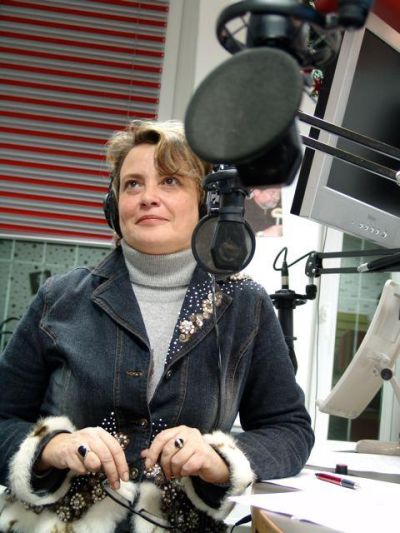Homeless Poles in Germany. Stories that need to be heard!

2. Prisoners of the street
The second episode illustrates everyday life on the streets – the fight for survival and against addiction, as well as the mechanisms that prevent homeless people from breaking out of the vicious cycle of hopelessness.
“For a homeless person, Germany is the best”, says Jędrzej, who has been living on the streets of Berlin for ten years. “You just need to cash in a few returnable bottles, and you already have two Euros. Then, you can go off and buy whatever you want, wine or beer, as there’s free food here on every corner.” An irony of fate? After all, even though homeless people are given a great deal more support in Germany than elsewhere in Europe, life on the streets is brutal. It not only ruins a person’s health, but also their relationships with other people and their hopes for a better future.
There are 5,000 homeless Poles living on the streets of Berlin. Many of them end up in emergency accommodation, such as the “Ballon” on Frankfurter Allee, where they can escape from the chaos of the street for a short time at least. Like many other homeless people from Poland, Beata also visits the “Ballon” regularly for a midday meal. “I sleep in the ‘rat cage’, in other words, in the emergency accommodation. There, you get woken up at six in the morning and thrown out. Then you have to wander the streets the whole day long. Sometimes the situation I’m in makes me cry. I miss Poland, but it’s better here; here, you at least get decent food to eat.”
For many Poles, life on the street in Germany seems easier than in Poland. However, here, too, it is all too often a bitter fight for survival. “We go cupping or bottling”, says Marek when asked how he supports himself. He means collecting returnable bottles or begging outside banks with a paper cup.
Alcoholism is one of the biggest problems facing Polish homeless people. As Czarek admits: “I’ve lost all my jobs because of alcohol. Now I live on the street.” A lack of documents also makes it harder to return to normality. As Beata openly admits: “I can’t go back to Poland, because I have a suspended sentence hanging over me. I don’t have an ID card or a passport, and without documents, I can’t get a job.”
Yet despite all these challenges, many homeless Poles try to preserve their dignity and support each other. “The Poles here stick together,” Beata says. “We don’t steal from each other, we help each other. These people here are real Poles.”
Compared to other countries, the German social welfare system has a great deal to offer. As Jędrzej, who has already spent time in the Netherlands, France and Spain, stresses: “The Germans have a very humane way of treating homeless people. If you’re sick, you get taken into hospital. Food, clothes, a place to sleep – it’s all provided for free here. But it’s also hell, because people come here, and think it’s paradise, and then they get into a vicious spiral of alcohol and drugs.” In spite of the many opportunities available, many homeless people don’t manage to find their way back to a normal life. “Berlin is a hellhole,” Jędrzej says. “It’s a cursed place. Poles die here on the street from alcohol and drugs. I’ve seen my friends slowly dying in their tents, forgotten by everyone.”
Is it ever possible to get away from the streets? Stories like the one told by Sylwia Jasion from Hanover give cause for hope. “One lady, who had lived on the streets for a long time, got herself together, applied for a passport, found a job, had a baby and began a new life,” she says. Changes in fortune like this one are made possible by street workers such as Zuza Mączyńska from “Gangway” and the collaboration between organisations in Poland and Germany. However, the professionals who work in this area stress that a strong commitment is needed from both sides – the organisations and the homeless people themselves – if any intervention is to work.
Homelessness is more than just a statistic. It affects the lives of real people, which are often filled with pain, loss and a fight for survival. Beata dreams of returning to Poland one day. Jędrzej says that Berlin has destroyed his life. Marek, however, is in search of hope in the form of small, everyday caring gestures. Their stories remind us that there is a life story behind every homeless person that deserves to be heard.








![Redakteur:innen von „COSMO [Radio] po polsku“. Von links: Tomasz Kycia, Adam Gusowski, Maciej Wiśniewski, Monika Sędzierska Redakteur:innen von „COSMO [Radio] po polsku“. Von links: Tomasz Kycia, Adam Gusowski, Maciej Wiśniewski, Monika Sędzierska](/sites/default/files/styles/width_100_tiles/public/00%20Redaktorzy%20prowadza%CC%A8cy%20audycje%20COSMO%20Radio%20po%20polsku.%20Od%20lewej%20Tomasz%20Kycia%2C%20Adam%20Gusowski%2C%20Maciej%20Wis%CC%81niewski%2C%20Monika%20Se%CC%A8dzierska.%20RBB%20Berlin%2C%202019.%20Copyright%20RBB.jpeg?itok=luTJDjgi)